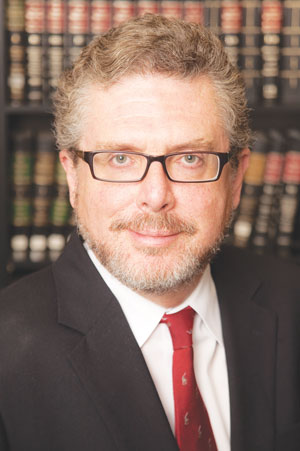When Christine Marchetti first heard about the explosion that seriously injured Manitoba lawyer Maria Mitousis, one thought went through her head.

“I thought for sure that’s criminal or family counsel,” says Marchetti, a lawyer at Stanchieri Family Law in Toronto. Marchetti says it wasn’t surprising that Mitousis practises family law given the violent passions cases can give rise to.
Mitousis suffered serious injuries on July 3 after opening a parcel bomb in her Winnipeg office. Guido Amsel, who’s facing charges of attempted murder and aggravated assault related to that incident as well as two others that week, is the ex-husband of a woman Mitousis represented as a divorce lawyer.
Although she says she’s fortunate to have avoided the kind of attack that befell Mitousis, Marchetti has had at least one experience that left her feeling threatened and shocked. Early in her practice, she entered an elevator after a proceeding to find herself next to the wife of the man she was representing. Looking at her, the woman drew her fingers across her own throat in a slitting motion.
Marchetti says she now avoids getting on elevators until the other party has clearly left. During proceedings that make her feel particularly uncomfortable, she chooses a seat next to the court officers.
While it’s also a contentious area, the situation in criminal law appears to be different. Leo Adler, of Adler Bytensky Prutschi Shikhman, says that in his roughly 40 years of practice in that area, he has never once felt that his personal safety was under threat. He’s sure it’s a different story for family lawyers, however.
“My experience is that certainly criminal defence counsel are very rarely the subject of any type of attack,” says Adler. “Family law generates usually much more angst, much more emotion than criminal cases. The parties have a tendency to blame the lawyers.”
It’s a field where suspicion can run high. It’s common, for example, for one member of an estranged couple to harbour suspicions that the other is in some sort of a relationship with a family lawyer, says Marchetti.
Toronto family lawyer Gary Joseph, managing partner at MacDonald & Partners LLP, notes Ontario has its own history of violence against family lawyers. In 1978, the husband of a client represented by family lawyer Frederick Gans shot and killed him at a Toronto courthouse. The court found the man not guilty by reason of insanity.
“We deal in a highly emotional field and it is surprising that there have not been more incidents,” says Joseph.
Family law firms should instruct their staff, he says, on the potential for violence by, for example, counselling lawyers on the signs to watch out for and establishing safety plans.
Sofia Mirza, president of the Manitoba Bar Association, says that in the aftermath of the attack against Mitousis, she heard from a number of members of the family law bar in the province about the “power and control struggles” that can make family law litigants so emotionally volatile.
“By retaining a lawyer, in some cases, a party now has a voice and is empowered when in the relationship they may not have been,” says Mirza. “Opposing parties sometimes view the lawyer pushing for their client’s rights as turning their world upside down.”
Kathryn Smithen, a sole practitioner based in Toronto, expresses a similar concern. “You never know what’s going to be the last straw that’s going to break the camel’s back, what’s going to push someone over the edge,” she says.
Aggressive behaviour, she says, doesn’t always come from clients on the opposite side of a family law case. She once had to call the police on a potential client who didn’t like what she was telling him and started screaming at her in her office. They charged the man with criminal harassment, she says.
Smithen notes she never sees a client unless there are administrative staff in the office with her.
Still, events this month have also shown that violence against lawyers goes beyond family law. On July 2, Benoît Côté, a lawyer specializing in corporate reorganization, transfers, and property law, and Marie-Josée Sills, a notary, died in hospital after a shooting at Côté’s office in Terrebonne, Que. The only suspect in the shooting, Michel Dubuc, was found dead with his two sons in what police believe was a murder-suicide. In a case that was still ongoing the week of the shooting, Dubuc had filed a $1.2-million lawsuit against Côté in 2013. Dubuc had also reportedly retained Côté’s law firm in an earlier lawsuit.
James Morton, a past president of the Ontario Bar Association, says he has had guns pulled on him on three separate occasions, once while driving on the highway with a client — an incident he says resulted in “a rather dramatic police takedown” — and twice in his office. Only the last incident related to a family law case, although he agrees that area is likely to involve the most threats to personal safety.
For more, see
"Lawyers suffering violence alone."

 “I thought for sure that’s criminal or family counsel,” says Marchetti, a lawyer at Stanchieri Family Law in Toronto. Marchetti says it wasn’t surprising that Mitousis practises family law given the violent passions cases can give rise to.
“I thought for sure that’s criminal or family counsel,” says Marchetti, a lawyer at Stanchieri Family Law in Toronto. Marchetti says it wasn’t surprising that Mitousis practises family law given the violent passions cases can give rise to.